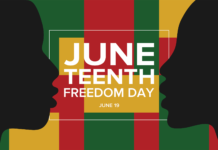
Many students want the privilege of having and using electronic devices during the school day. Pagers, cell phones, cellular radios, IPODs, MP3s, games and other new devices are fun to have and fun to use, but they are discouraged on the middle school campus.
“I can understand why parents want their children to have cell phones to let them know where they are or when they need to be picked up,” Maricopa Wells Middle School Principal Stephanie Sharp told parents and staff members at Monday’s site council meeting.
With the privilege of having such devices comes responsibility. According to policy, cell phones are to be turned off from the start of the school day until its end. If they are on and make noise, vibrate or call attention to the user, they are considered a classroom disruption and will be confiscated by the teacher.
Parents will be notified of a second occurrence, and the third time an item is turned in from the same student, it will be held for one month until parents request its return.
Additionally, Maricopa Wells is not responsible for the loss or theft of these items, which are in high demand. Investigations for lost or stolen electronic devices will no longer be conducted.
“We spend hours searching for these items, and we have other, academic and safety issues to address,” said Sharp.
Students leave the devices in unattended backpacks or loan them to a friend who loans them to another friend until they cannot be located. “If your child carries a cell phone to school, have them keep it in their pocket,” Sharp explained.
Sharp added that large sums of money should not be on campus for many of the same reasons. Students tell others they have the cash, which is often left in unattended backpacks and then reported missing.
The issue of social networking on Web sites such as www.myspace.com, www.mycrib.net and www.facebook.com (which shares how to “hack” passwords) was discussed.
This week News Corp., MySpace’s parent company, launched a Spanish version of its social-networking site in an attempt to increase its appeal among the Hispanic population. MySpace is estimated to attract 95 million unique users a month, according to ComScore, Inc. data.
Both SRO Deputy Kent Ogaard and Sharp cautioned parents about their teens’ use of social-networking sites. Although students may be told not to share their names, addresses and phone numbers, it is easy for predators to ascertain their locations by other means.
Sharp explained that someone can ask what the student did that day. “We had a game with Eloy.” Asked if the game was home or away, or even the team name and the sport, gives a predator sufficient information to know they are speaking with a middle school student.
A parent provided the group with information on blocking access to MySpace or other sites on your home computer. That information is available at the following site: www.theparentsedge.com/Block_Myspace.html.
Contacting your service provider can block text messaging on a child’s cell phone, both sending and receiving. In addition, said Sharp, “If a credible threat is received, school officials will review text messages” of implicated students.
Ogaard added that it is a Class 4 felony, termed a “terroristic hoax,” to use an electronic device to create a viable threat to a school.
“Our main concern is the well-being of every child here,” said Sharp.


![Who’s the Best Mom InMaricopa? Nominate now! Marlene Marshall, Christina Olivares, and Meghan Bremer. [Bryan Mordt]](https://www.inmaricopa.com/wp-content/uploads/2023/05/BCM_8465-218x150.jpg)



![Maricopa sheds tears amid Maui wildfires that killed dozens For Maricopa resident Janelle Gomez, the sorrow mirrors the loss of a family member. [Brian Petersheim]](https://www.inmaricopa.com/wp-content/uploads/2023/08/Gomez-218x150.jpg)
![Embracing Freedom: Celebrating the Fourth of July Councilmember Vincent Manfredi at Great American 4th 2021 [Victor Moreno]](https://www.inmaricopa.com/wp-content/uploads/2023/07/2021-Great-American-4th-e1688414543522-218x150.jpg)




![Alleged car thief released without charges Phoenix police stop a stolen vehicle on April 20, 2024. [Facebook]](https://www.inmaricopa.com/wp-content/uploads/2024/04/IMG_5040-218x150.jpg)




![City gave new manager big low-interest home loan City Manager Ben Bitter speaks during a Chamber of Commerce event at Global Water Resources on April 11, 2024. Bitter discussed the current state of economic development in Maricopa, as well as hinting at lowering property tax rates again. [Monica D. Spencer]](https://www.inmaricopa.com/wp-content/uploads/2024/04/spencer-041124-ben-bitter-chamber-property-taxes-web-100x70.jpg)